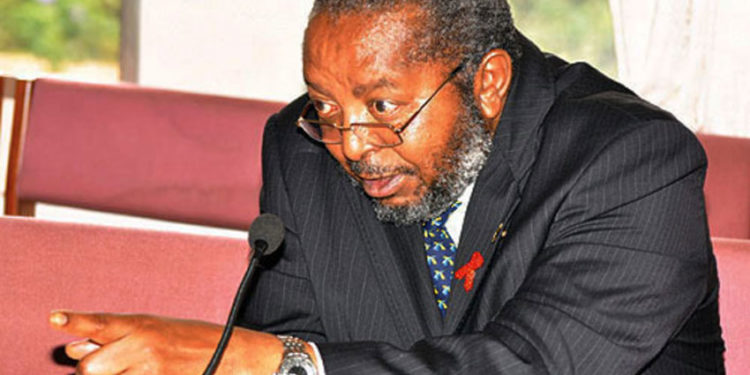Bank of Uganda has announced it will be appealing the recent Court of Appeal ruling, which upheld an earlier High decision to dismiss a case that had been filed against businessman Sudhir Ruparelia by Crane Bank in receivership. The Central bank now intends to take the matters to the Supreme Court.
Last week, the Court of Appeal in Kampala threw out a case against Dr Sudhir.
The Panel of judges led by acting Chief Justice Alfonse Owiny- Dollo upheld the judgment of Commercial Court judge David K. Wangutusi in application filed by Bank of Uganda seeking a refund of Shs397 billion from Sudhir which he allegedly siphoned from the defunct Crane Bank. Court dismissed case with costs.
Bank of Uganda/Crane Bank in receivership (BoU) had appealed against an August 26, 2019 ruling where the High Court Commercial division dismissed with costs, the multi-billion lawsuit.
In his ruling, Justice Wangutusi stated that BoU/Crane Bank (in receivership) did not have a legal basis to sue Sudhir, the owner of Crane Bank, then the second biggest bank in Uganda.
Court ordered Bank of Uganda to pay Sudhir’s legal costs.
However in a statement on Tuesday, Central Bank Governor Emmanuel Tumusiime Mutebile said that receivership does not take away the corporate personality of a company which includes the right to trace and recover assets and the right to sue for those assets.
The Central Bank also says neither the High Court nor the Court of Appeal has yet considered or taken a decision on the claims for wrongful and illegal extraction of funds from Crane Bank as claimed in the main suit.
“The implications of these judgments are that a Receiver of a financial institution/bank cannot pursue or seek recovery of assets of a bank in receivership by way of legal proceedings,” Mutebile said.
Mutebile further warned that such court rulings could set a dangerous precedent.
“The implications of these judgments are that a Receiver of a financial institution/bank cannot pursue or seek recovery of assets of a bank in receivership by way of legal proceedings. This renders the principle of tracing and preserving assets of an insolvent bank during statutory management and receivership futile,” Mutebile said.
“The judgements also set a precedent that limits the Central Bank’s capacity to resolve banks in a manner that ensures accountability for mismanagement of depositor funds and promotes good corporate governance in the banking industry.”
BoU /Crane Bank in Receivership had sued the property mogul and Meera Investments Limited for allegedly fleecing the defunct Crane Bank Limited (CBL) of Shs397 billion that the central bank wanted refunded.
Sudhir denied the allegation and has since counter-sued BoU, seeking compensation of $8m (Shs28 billion) in damages for breach of contract.
He asked the Commercial Court to dismiss the case arguing that the central bank over stepped its mandate in commencing court proceedings against him and his Meera Investments Company.
Presenting an objection against BoU, Sudhir through his lawyers Kampala Associated Advocates told Justice Wangutusi that when dissolving a bank, BoU had three options including putting someone else in its management – what is termed as statutory management, receivership or liquidation.
Counsel Elison Karuhanga argued that however, BoU chose to go for receivership yet under the law, specifically only the manager and the liquidator of the said bank is mandated to file a suit and not a Receiver.
He further explained that, BoU as a Receiver could only dissolve or sell Crane Bank within 12 months but not sue it’s managers.
However, in response to the submissions of Sudhir’s lawyers, BoU through its lawyer Dr Joseph Byamugisha told court that when a financial institution is placed under receivership the power to commerce or to continue with a civil suit does not stop.
BoU on October 20, 2016 placed Crane Bank under statutory management for being under-capitalised.
The central bank attributed the under-capitalisation to mismanagement and insider lending, resulting in Crane Bank’s unsustainable non-performing loan portfolio. The bank was later sold to dfcu Bank in January 2017, although the central bank retained some of its liabilities.
Bank of Uganda closed Sudhir’s bank, then the second biggest bank, and largest indigenous financial institution
Meanwhile, separate investigations by the Auditor General and Parliament recently found contrary information regarding the takeover and sale of Crane Bank. It was also discovered that BoU managers fell short of professionalism, having closed six more banks in the same shabby and illegal manner.
Do you have a story in your community or an opinion to share with us: Email us at editorial@watchdoguganda.com












